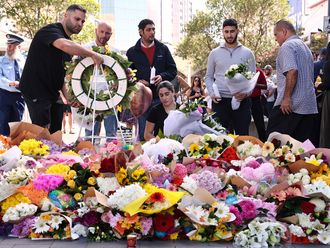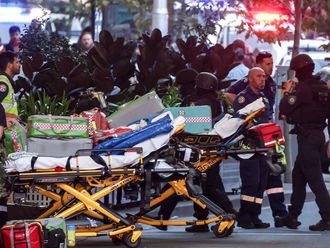Sydney: Papua New Guinea’s decision to relocate hundreds of men held in an Australian-run detention centre to a nearby town soon exposes them to violence and inadequate medical care, asylum seekers and human rights groups said on Tuesday.
Papua New Guinea immigration officials told asylum seekers on Monday that an area of the controversial Manus Island camp north of the PNG mainland would close on May 28, with the rest of the compound to shut on June 30.
Those eligible for resettlement to the United States, under a deal that US President Donald Trump has described as “dumb”, will be settled within weeks in the town of Lorengau on the island, which is in a remote area of the Bismarck Sea.
The 905 men held on Manus Island are already allowed to travel to Lorengau during the day but nearly all choose to remain in the detention centre amid allegations of assaults and threats against them by residents.
“We are concerned that these men are being moved to a place with even higher security risks than Manus Island and one that has inadequate facilities to deal with people who require medical treatment,” said Kate Schuetze, Pacific researcher for Amnesty International.
Papua New Guinea officials could not be reached immediately for comment.
The relocation of detainees comes as Papua New Guinea prepares to close the centre at the end of October when the contact of the camp operator Ferrovial ends.
The camp was set up in 2013, when Australia funded two remote Pacific detention centres to detain asylum seekers who arrive by boat indefinitely.
Manus Island and a centre on Nauru have drawn condemnation from human rights organisation for cramped conditions, inadequate medical facilities and violence.
While those who will be relocated said their fears were tempered slightly by signs of progress in moving to the United States, those who are not eligible for resettlement said the move showed Papua New Guinea’s commitment to deport failed asylum seekers.
Reuters reported earlier this year that dozens of asylum seekers had accepted up to A$20,000 (Dh54,476 or $14,842) to return home, the largest exodus in four years.
However, the number of detainees electing to return home has fallen sharply in recent weeks, with just two accepting Australian incentives to leave voluntarily, a source familiar with the camp told journalists.
“Those not eligible for resettlement have sought to read the tea leaves to understand whether they will be deported. There will be some who see no option but to accept the financial resettlement offer,” said an Australian official, who declined to be identified because he is not authorised to talk to the media.












